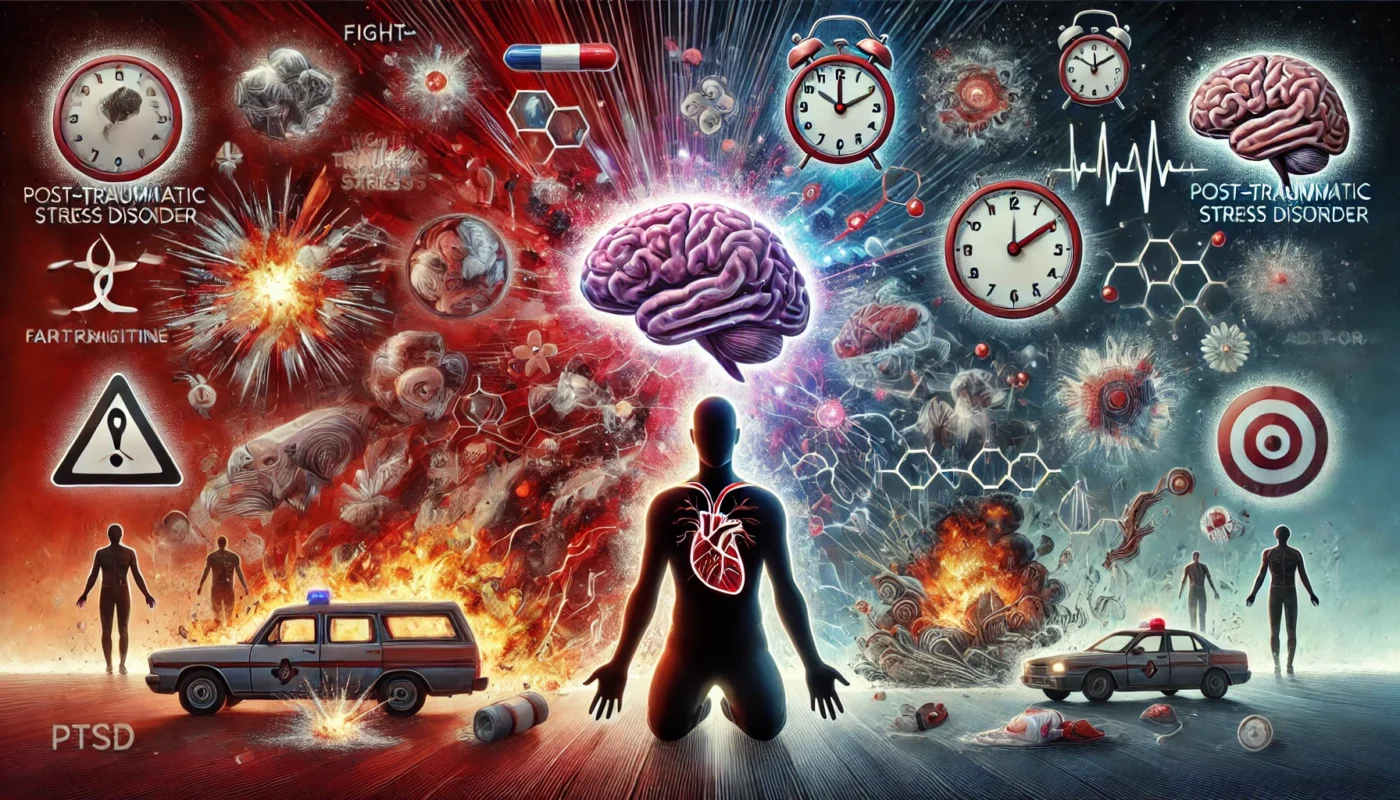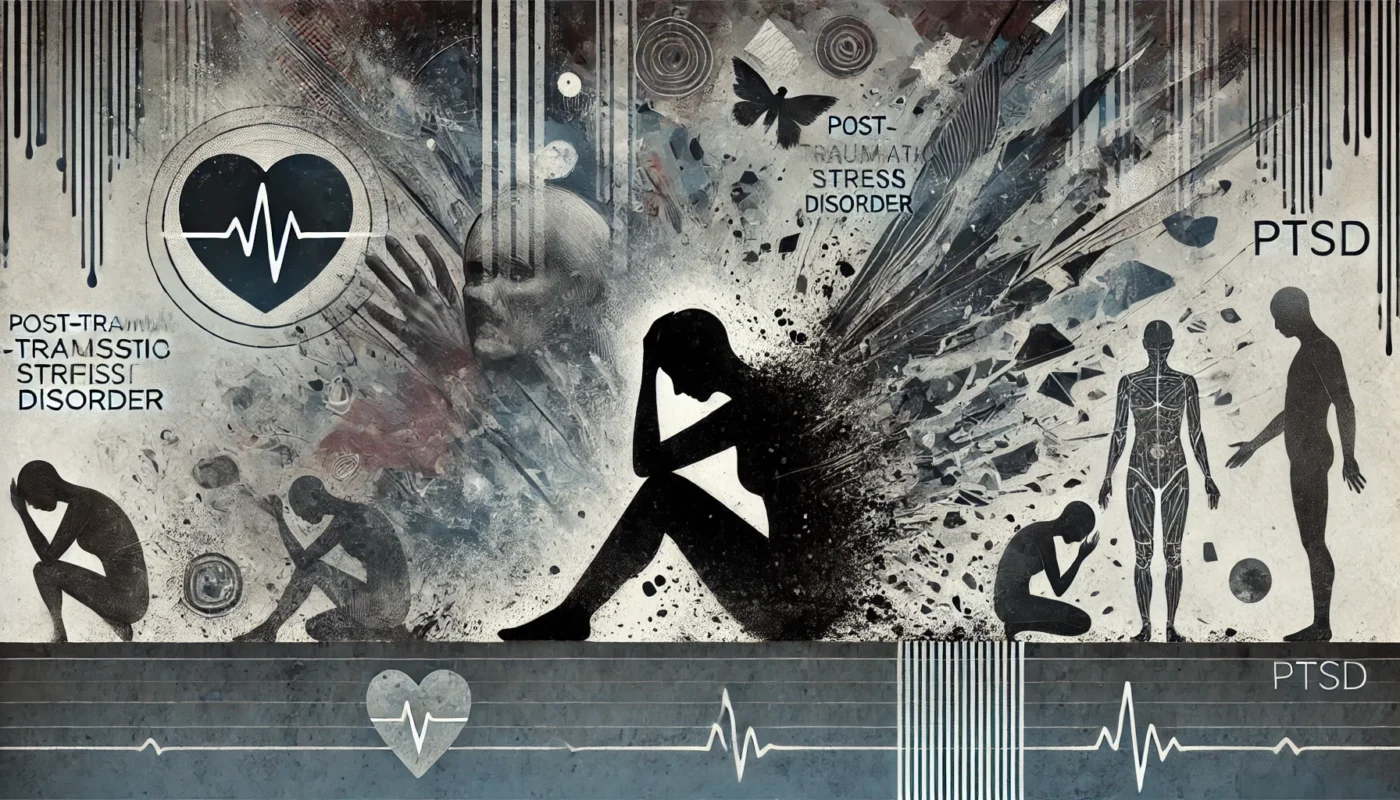Post-Traumatic Stress Disorder (PTSD) is a complex mental health condition that can develop after exposure to a traumatic event. Affecting individuals across demographics, PTSD is more than just a reaction to stress—it is a pervasive condition that disrupts daily functioning and overall quality of life. This article provides an in-depth exploration of PTSD, focusing on its symptoms, causes, treatment options, and preventive strategies, while highlighting the potential role of nutritional supplementation in supporting recovery.
You May Also Like:
What is PTSD?
PTSD is characterized by persistent mental and emotional distress following a traumatic experience. Events such as combat exposure, natural disasters, accidents, or personal assaults can act as triggers. According to the American Psychiatric Association, about 3.5% of adults in the U.S. are affected by PTSD annually, and an estimated one in 11 people will be diagnosed with it during their lifetime.
Unlike typical stress responses that fade over time, PTSD symptoms can persist for months or years without intervention. This disorder can impair relationships, occupational performance, and physical health if left untreated.

Symptoms of PTSD
The symptoms of PTSD fall into four main categories, each of which can affect a person’s emotional and physical well-being:
1. Intrusive Thoughts
- Recurring and distressing memories of the traumatic event
- Flashbacks, where the person feels as though the event is happening again
- Nightmares related to the trauma
2. Avoidance
- Avoiding people, places, or situations that trigger memories of the trauma
- Withdrawing from social interactions or activities once enjoyed
- Suppressing thoughts or feelings about the event
3. Negative Changes in Cognition and Mood
- Persistent feelings of guilt, shame, or fear
- Difficulty remembering aspects of the traumatic event
- Reduced interest in daily activities or difficulty experiencing positive emotions
4. Hyperarousal and Reactivity
- Increased irritability or anger outbursts
- Being easily startled or feeling constantly on edge
- Sleep disturbances, including insomnia
For a diagnosis of PTSD, these symptoms must persist for at least one month and significantly impair social, occupational, or other important areas of functioning.
Causes of PTSD
PTSD arises from a combination of factors that include the severity of the trauma, individual vulnerability, and environmental influences. Common causes include:
1. Experiencing Trauma
Traumatic events such as combat exposure, sexual assault, or severe accidents are the most common triggers. A 2018 study in Trauma, Violence, & Abuse found that sexual assault survivors are at a higher risk for PTSD, with rates exceeding 50%.
2. Preexisting Mental Health Conditions
Individuals with a history of anxiety or depression are more likely to develop PTSD. A 2019 study in Psychiatry Research noted a strong correlation between preexisting psychiatric conditions and PTSD severity.
3. Lack of Support Systems
A weak social network can exacerbate feelings of isolation after trauma. Conversely, strong familial and social support can reduce PTSD risk.
4. Genetic and Biological Factors
Genetic predisposition and hormonal imbalances, such as elevated cortisol levels, can increase vulnerability to PTSD. A 2020 study in Nature Genetics highlighted specific genetic markers associated with PTSD susceptibility.
5. Cumulative Stress
Chronic stress or exposure to multiple traumatic events, such as repeated abuse, can compound the likelihood of developing PTSD.

Treatment Options for PTSD Recovery
Effective treatment for PTSD often requires a multidisciplinary approach, incorporating therapy, medication, and lifestyle modifications. Below are the most commonly employed strategies:
1. Psychotherapy
Evidence-based therapies such as Cognitive Behavioral Therapy (CBT) and Eye Movement Desensitization and Reprocessing (EMDR) are highly effective. A randomized controlled trial in JAMA Psychiatry (2019) demonstrated that EMDR reduced PTSD symptoms by over 50% in participants within 12 weeks.
2. Medications
Antidepressants, particularly selective serotonin reuptake inhibitors (SSRIs) like sertraline and paroxetine, are FDA-approved for PTSD treatment. These medications help regulate mood and reduce anxiety. A 2021 study in Neuropsychopharmacology noted significant symptom reduction in 70% of participants using SSRIs.
3. Mindfulness and Stress Reduction Techniques
Mindfulness meditation, yoga, and deep breathing exercises help regulate emotional responses. A 2020 study in Mindfulness found a 35% reduction in PTSD symptoms after an eight-week mindfulness-based intervention.
4. Group Therapy
Sharing experiences in a supportive group setting can provide validation and foster a sense of community, particularly for veterans and survivors of interpersonal trauma.
Nutritional Supplementation for PTSD
Nutritional supplements can be an adjunct to traditional treatments for PTSD, helping to modulate stress responses and support overall mental health. Research has identified the following as beneficial:
1. Magnesium Glycinate
Magnesium is essential for nerve function and stress regulation. Magnesium glycinate, a bioavailable form, has calming effects on the nervous system. A study published in Magnesium Research (2016) found that magnesium supplementation significantly reduced anxiety and irritability in individuals with PTSD.
2. Ashwagandha
This adaptogenic herb is known for reducing cortisol levels and improving resilience to stress. A clinical trial in Journal of Ethnopharmacology (2019) reported a 30% reduction in PTSD symptoms among participants who took ashwagandha for eight weeks.
3. Omega-3 Fatty Acids
Rich in anti-inflammatory properties, omega-3s support brain health and emotional regulation. A 2020 study in Psychiatry Research noted that PTSD patients who supplemented with omega-3s experienced improved mood and reduced intrusive thoughts.
4. L-Arginine
This amino acid enhances blood flow and supports neurotransmitter production. A 2021 study in Frontiers in Neuroscience found that L-arginine supplementation improved stress tolerance and cognitive function in trauma survivors.
5. Vitamin D
Vitamin D plays a critical role in mood regulation and immune function. Research published in Nutrients (2020) revealed that PTSD patients with higher vitamin D levels reported better emotional stability and lower symptom severity.
6. Zinc Picolinate
Zinc supports the hippocampus, a brain region critical for memory and emotional regulation. A 2018 study in Biological Psychiatry found that zinc supplementation reduced hyperarousal symptoms in PTSD patients.

Steps for Possible Prevention of PTSD
Preventing PTSD involves proactive management of stress and psychological resilience following trauma. The following steps can help reduce the risk of developing PTSD:
1. Early Intervention
Seek immediate support after experiencing trauma. Crisis counseling and debriefing sessions can mitigate long-term psychological damage.
2. Build Resilience
Engage in activities that promote emotional resilience, such as mindfulness meditation, journaling, or spending time in nature.
3. Foster Social Connections
Strong social networks reduce feelings of isolation and provide emotional support during recovery. Engage with family, friends, or community support groups.
4. Practice Regular Self-Care
Incorporate healthy lifestyle habits, including regular exercise, balanced nutrition, and adequate sleep, to maintain emotional and physical well-being.
5. Limit Exposure to Triggers
Avoid environments or situations that could exacerbate stress or reignite trauma-related memories.
6. Utilize Professional Resources
Seek therapy or counseling if trauma symptoms persist. Early therapeutic intervention significantly reduces the risk of PTSD progression.
Conclusion
PTSD is a multifaceted condition that impacts mental, emotional, and physical health. However, with appropriate treatment and preventive strategies, recovery is achievable. A combination of psychotherapy, medication, and lifestyle modifications, including the integration of supplements such as magnesium glycinate, ashwagandha, and omega-3 fatty acids, can support individuals in managing symptoms and improving their quality of life. By fostering resilience and leveraging professional resources, those affected by PTSD can work toward a healthier, more balanced future.

References
- Omega-3 Fatty Acids Prevent Post-Traumatic Stress Disorder-Induced Memory Impairment. Retrieved from: https://pmc.ncbi.nlm.nih.gov/articles/PMC6468674/
- Ashwagandha: Is it helpful for stress, anxiety, or sleep? Retrieved from: https://ods.od.nih.gov/factsheets/Ashwagandha-HealthProfessional/
- Supplements for PTSD: Effective Natural Aids for Symptom Management. Retrieved from: https://brcrecovery.com/blogs/supplements-for-ptsd/
- PTSD (Post-Traumatic Stress Disorder). Retrieved from:l https://my.clevelandclinic.org/health/diseases/9545-post-traumatic-stress-disorder-ptsd
Important Note: The information contained in this article is for general informational purposes only, and should not be construed as health or medical advice, nor is it intended to diagnose, prevent, treat, or cure any disease or health condition. Before embarking on any diet, fitness regimen, or program of nutritional supplementation, it is advisable to consult your healthcare professional in order to determine its safety and probable efficacy in terms of your individual state of health.
Regarding Nutritional Supplements Or Other Non-Prescription Health Products: If any nutritional supplements or other non-prescription health products are mentioned in the foregoing article, any claims or statements made about them have not been evaluated by the U.S. Food and Drug Administration, and such nutritional supplements or other health products are not intended to diagnose, treat, cure, or prevent any disease.

